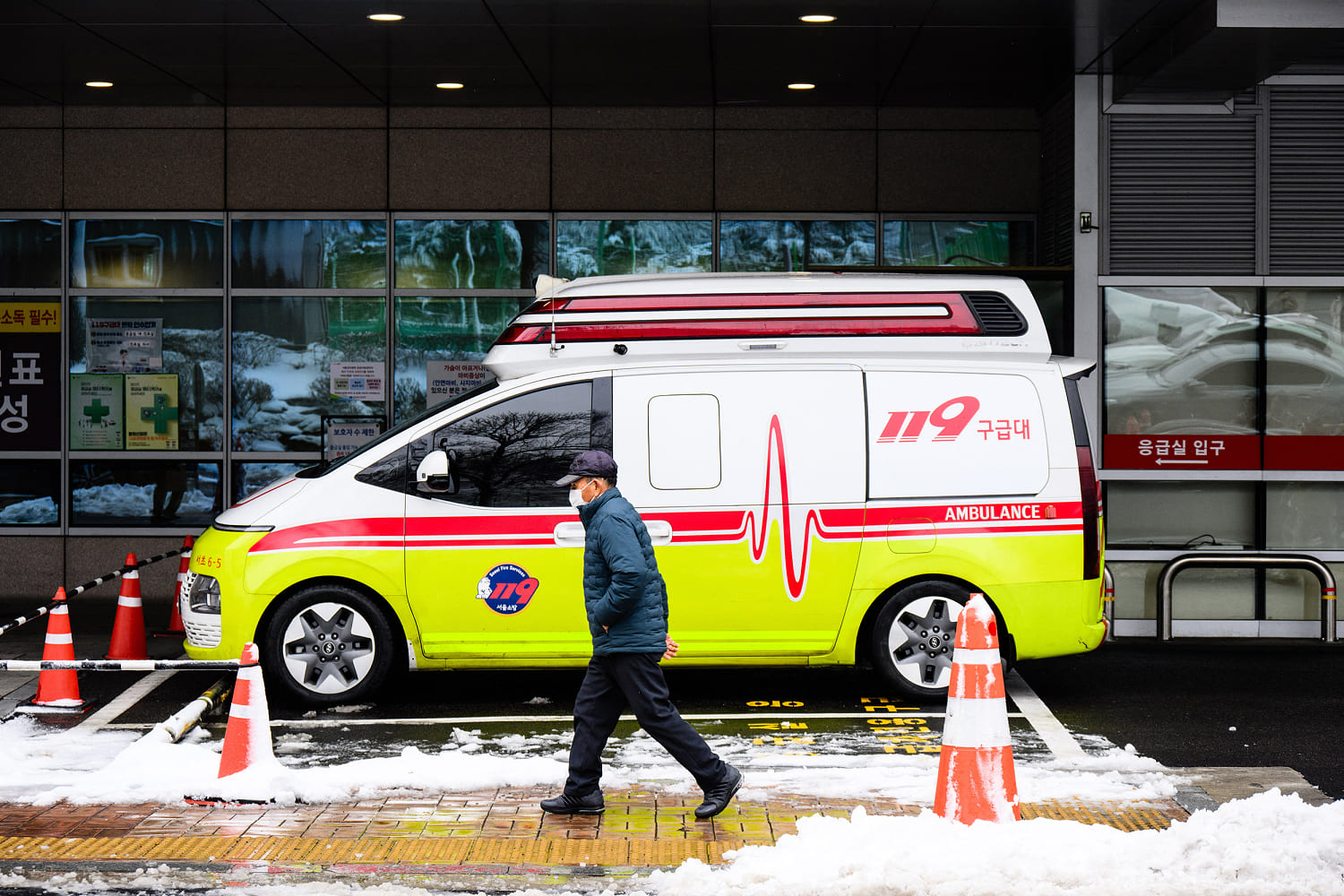South Korea health alert raised to ‘severe’ over doctors walkout

Public hospitals will extend operating hours and will also open on weekends and holidays, he said.
So far, more than 8,400 doctors have joined the walkout, the health ministry said, equivalent to about 64% of the entire number of resident and intern doctors in South Korea.
While they represent a far smaller fraction of the country’s 100,000 doctors overall, trainee doctors make up a big portion of the staff at teaching hospitals, more than 40% in some cases, and play a key role in the daily operations.
Their role is especially pronounced in emergency rooms, intensive care units and operating rooms at the large hospitals, which are visited by patients referred to them by secondary hospitals and private practice clinics. Larger hospitals rely excessively on trainee doctors in part for cost reasons.
The growing pressure on hospitals prompted the government to raise its health alert to “severe” from “cautious” as of Friday.
Emergency departments in South Korea’s biggest hospitals have been squeezed since trainee doctors began leaving the job this week in protest at the government plan.
The doctors taking part in the protest say the real issue is pay and working conditions, not the number of physicians.
Senior doctors and members of the Korean Medical Association, which represents physicians in private practice, have not joined the trainee doctors in the walkout but held rallies demanding the government scrap its plan.
A large rally is expected in Seoul on Sunday.
The prime minister again pleaded with young doctors to not make the wrong choice that would forever tarnish the sacrifice and dedication they showed during the Covid-19 pandemic that had earned them the respect of the public.
He also called on the medical community to stop “pushing young doctors” and said the government is always open to dialogue.
Many Koreans support the government’s plan to increase medical school admissions, with a recent Gallup Korea poll showing about 76% of respondents in favor, regardless of political affiliation.





